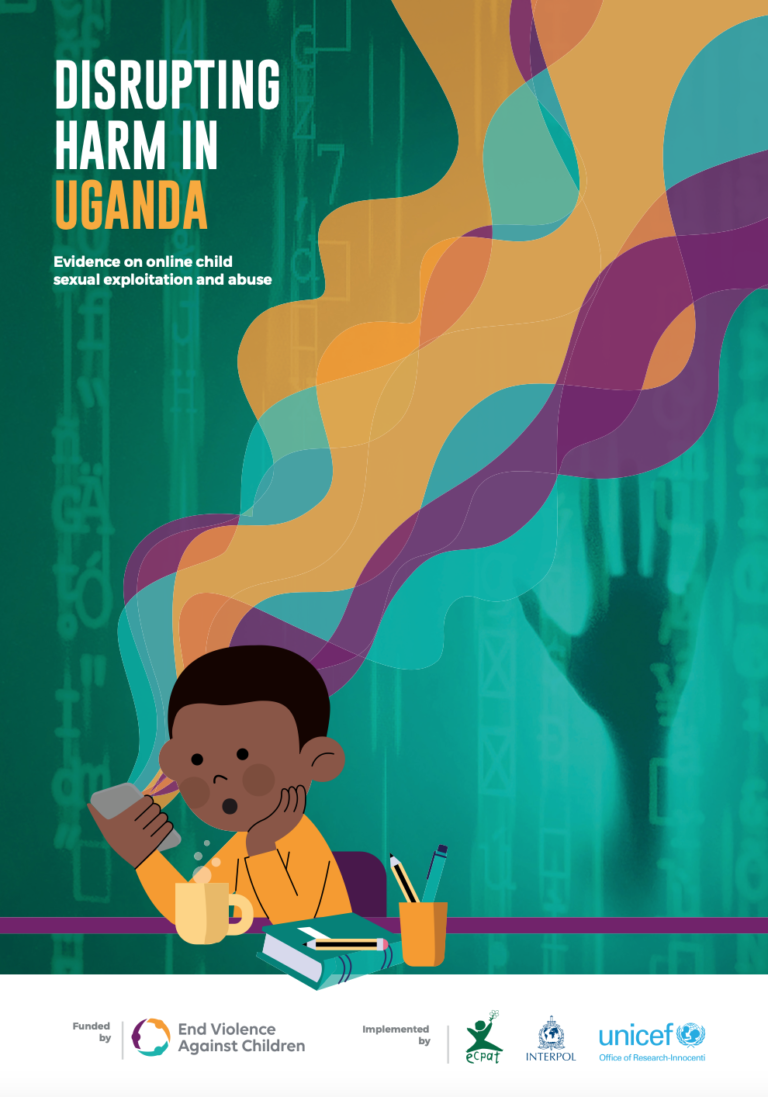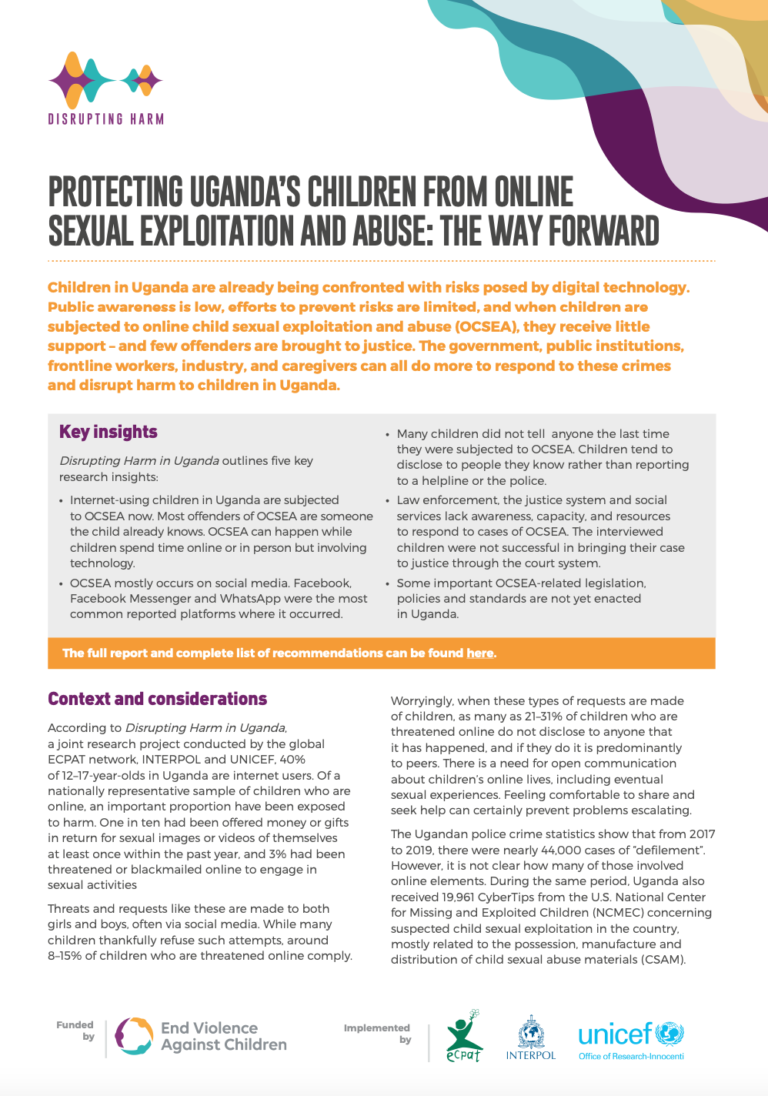Funded by the Global Partnership to End Violence against Children, through its Safe Online initiative, ECPAT, INTERPOL, and UNICEF Office of Research – Innocenti worked in partnership to design and implement Disrupting Harm – a multifaceted research project on online child sexual exploitation and abuse (OCSEA). OCSEA refers to situations that involve digital or communication technologies at some point during the continuum of abuse or exploitation; it can occur fully online or through a mix of online and in-person interactions between offenders and children. The Disrupting Harm research was conducted in six Southeast Asian countries and seven Eastern and Southern African countries, including Uganda. Data is synthesised from nine different research activities to generate each national report which tells the story of the threat and presents clear recommendations for action.


